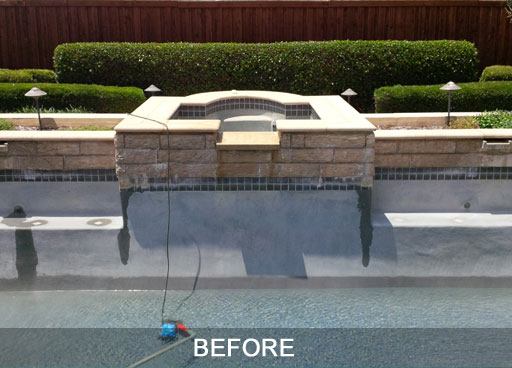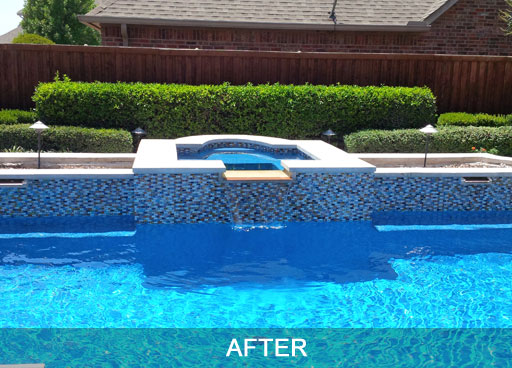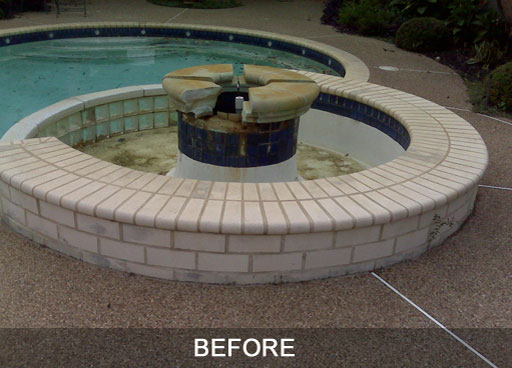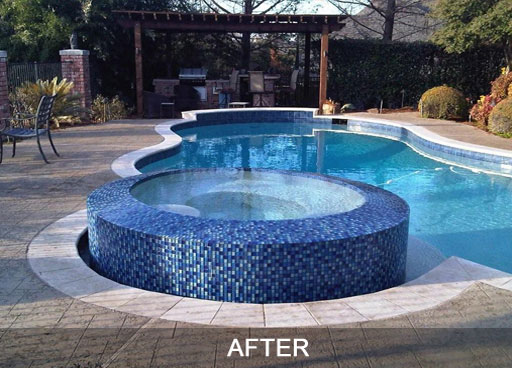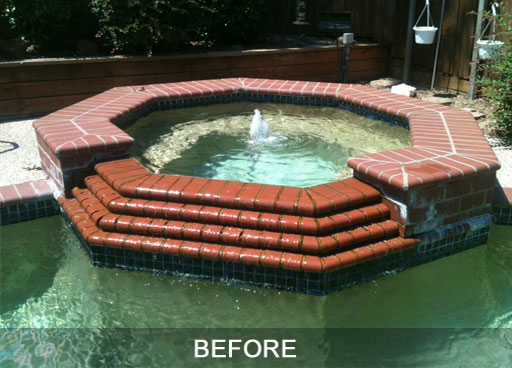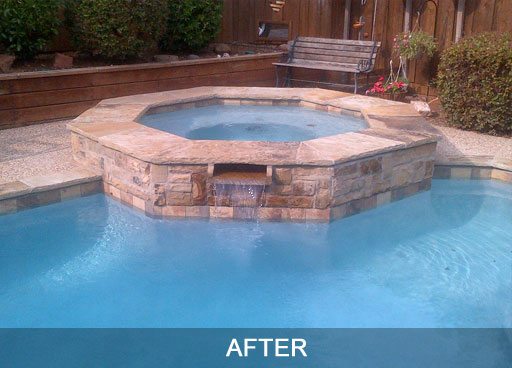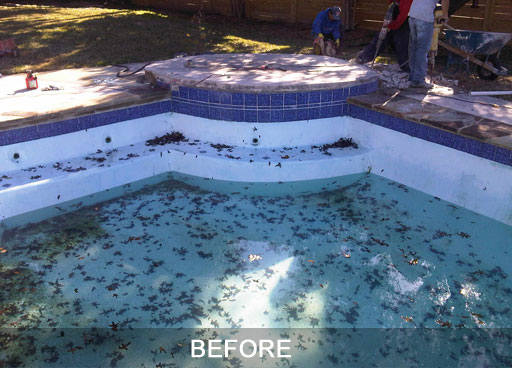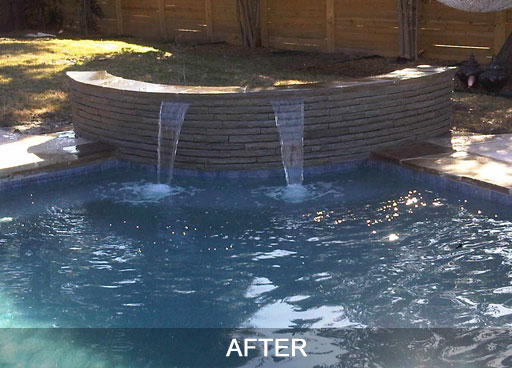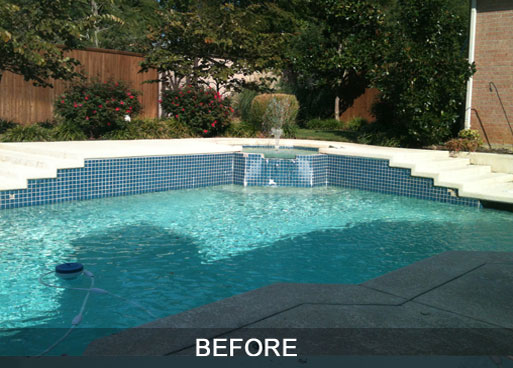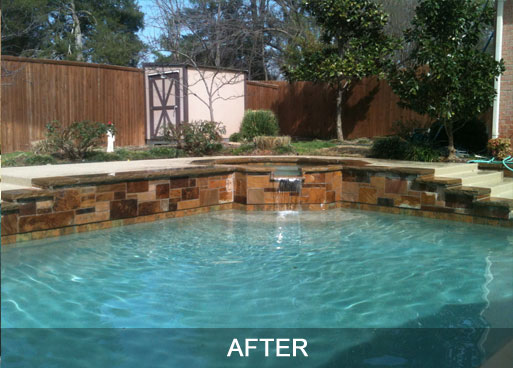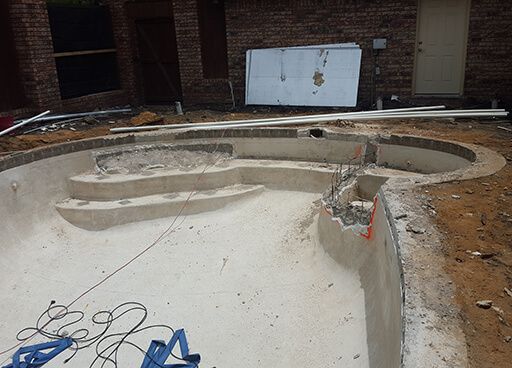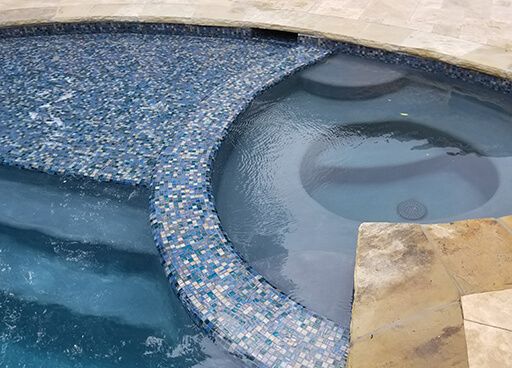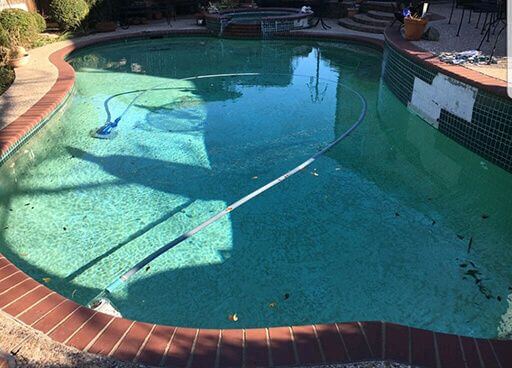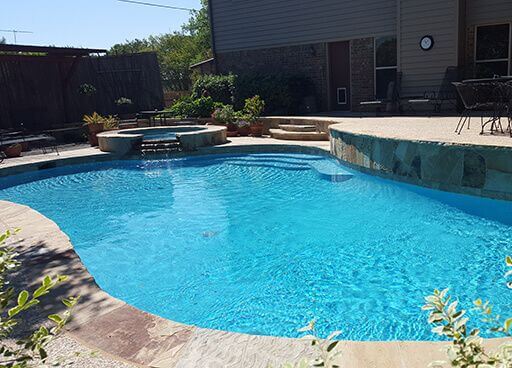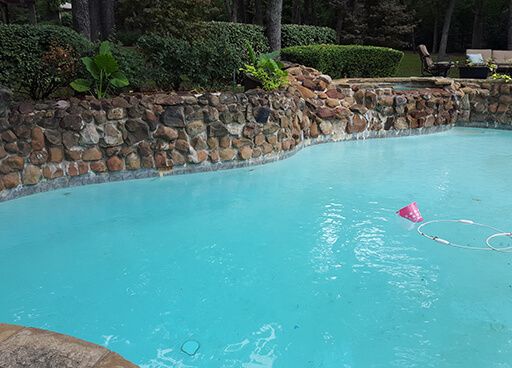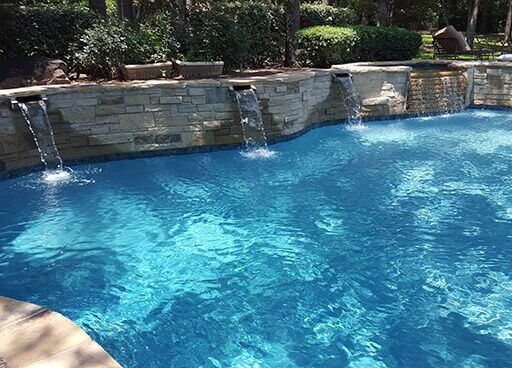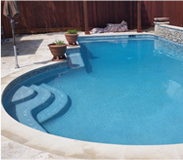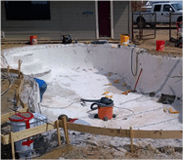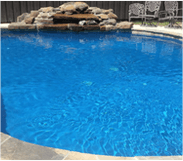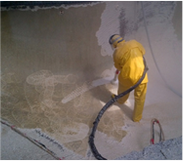Pool Remodel
Dallas Pool Remodel Experts
Pool Remodel
If you can answer yes to any of the following questions, it’s time to think about a pool remodel.
- Pool plaster too rough?
- Pool plaster failing due to broken debonded areas?
- Pool cracked and leaking?
- Tile outdated and/or falling off the pool wall?
- Pool coping hollow or shifting away from your decking?
- Looking to add outdoor living space?
- Or are you just looking for a change?
These are all good reasons for a pool remodel.
On the other hand, you may simply want to change the color of your swimming pool by replastering. You might be interested in taking that next step to building your backyard haven, such as adding a spa or creating a custom fireplace. No matter what drives your decision to remodel your swimming pool, you should never feel limited to the possibilities you can achieve through a remodel just because you already have an existing pool in your backyard. One factor remains the same in any swimming pool remodel, you want to be sure that the job is completed by a quality contractor. When looking for a contract for your swimming pool remodel you should take the following items into consideration:
- A contractor that will keep you completely apprised of the daily schedule for your job;
- A contractor that is properly insured (general liability, auto and worker’s compensation), your property may be at risk if you hire an uninsured plaster applicator;
- A contractor that will be still in business in the future, if you have an issue. *GM Pools offers a 10 year guarantee on every pool we replaster.
Original pool plaster that is bonded to the substrate can last a long time if the water chemistry is kept in its proper ranges. The point it can change from enjoying your pool to putting up with your pools happens when the water chemistry is not properly managed. Improper water chemistry causes the water to etch and deteriorate the plaster making it rough and easily stained.
Pool plaster should never be acid washed to clean it up. The acid will etch the surface and weaken the plaster making it possible for the stains to come back in full force. It also will make the surface rough.
Pool tile will commonly develop failures due to the order in which it was installed. If it was not installed on the beam and is above the top of the gunite edge it will be subject to pressure transferred from the pool deck when the ground around the pool swells from moisture or shrinks up due to lack of moisture. GM Pools will always install the tile first to avoid this ever happening on pools.
The coping can lose its bond to the pool beam when the expansion joint between the deck and that coping is not sufficient enough to protect the coping from ground movement that is under the decking. The movement is transferred to the coping and will cause the coping to become loose and hollow. This can also cause the tile to begin to lose its bond to the pool beam.
Your pool might have a glass block spa wall that you have been putting up with or a cantilever deck edge that is cracked and causing issues for the pool.
If your pool has been replastered in the past with a homebrew bond coat, it is not water tight as plaster is intended to be. The homebrew bond coat does not keep your plaster bonded to the substrate. This allows water to get between the layers of plaster. Once that happens your plaster and your pool are at risk for damage. GM Pools knows how to deal with these issues and many others. We have the experience and processes to make your pool remodel investment a good decision. We back that up with a 10-year bond warranty on every pool process replaster with our hydro demo replaster process



